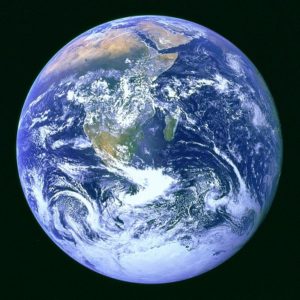
A new study carried out by researchers from the University of New South Wales in Australia suggests that life on Earth most likely started on land rather than in the sea.
Researchers involved in this study scoured the landscape of the Pilbara region of Western Australia to search for clues to how ancient microbes could have produced the abundant stromatolites that were discovered there in the 1970s.
Stromatolites are round, multi-layered mineral structures that range from the size of golf balls to weather balloons and represent the oldest evidence that there were living organisms on Earth 3.5 billion years ago.
Scientists, who believed life began in the ocean, thought these mineral formations had formed in shallow, salty seawater. However, researchers found the evidence that the stromatolites had not formed in salt water but instead in conditions more like the hot springs.
The discovery pushed back the time for the emergence of microbial life on land by 580 million years and also bolsters a paradigm-shifting hypothesis that life began, not in the sea, but on land, researchers said. The model for life beginning on land rather than in the sea could not only reshape our idea about the origin of life and where else it might be, but even change the way we view ourselves, researchers said.
For four decades, ever since the research vessel Alvin discovered deep-sea hydrothermal vents that were habitats for specialised bacteria and worms that looked like something out of a science-fiction novel, scientists have theorised that these mineral-and gas-pumping vents were just what was needed for life to begin.
However, David Deamer from University of California, Santa Cruz in the US thought the theory had flaws. For instance, molecules essential for the origin of life would be dispersed too quickly into a vast ocean, he said and salty seawater would inhibit some of the processes he knew are necessary for life to begin.
Trekking to volcanoes from Russia to Iceland and hiking through the Pilbara desert, Deamer and his colleagues’ observations of volcanic activity suggested the idea that hot springs provided the right environment for the beginning of life. According to him, ancient Earth consisted of a huge ocean spotted with volcanic land masses. Rain would fall on the land, creating pools of fresh water that would be heated by geothermal energy and then cooled by runoff.
Some of the key building blocks of life, created during the formation of our solar system, would have fallen to Earth and gathered in these pools, becoming concentrated enough to form more complex organic compounds.
Deamer and his team believe the first life emerged from the natural production of vast numbers of such membrane- encased “protocells.” While there is still debate about whether life began on land or in the sea, the discovery of ancient microbial fossils in a place like the Pilbara shows that these geothermal areas—full of energy and rich in the minerals necessary for life—harboured living microorganisms far earlier than believed, researchers said.
The study was published in the journal Scientific American.
Source:http://www.livemint.com/Science/rWaqPNZESCEqL5O3X2k09N/Life-on-Earth-likely-began-on-land-not-sea-study.html
